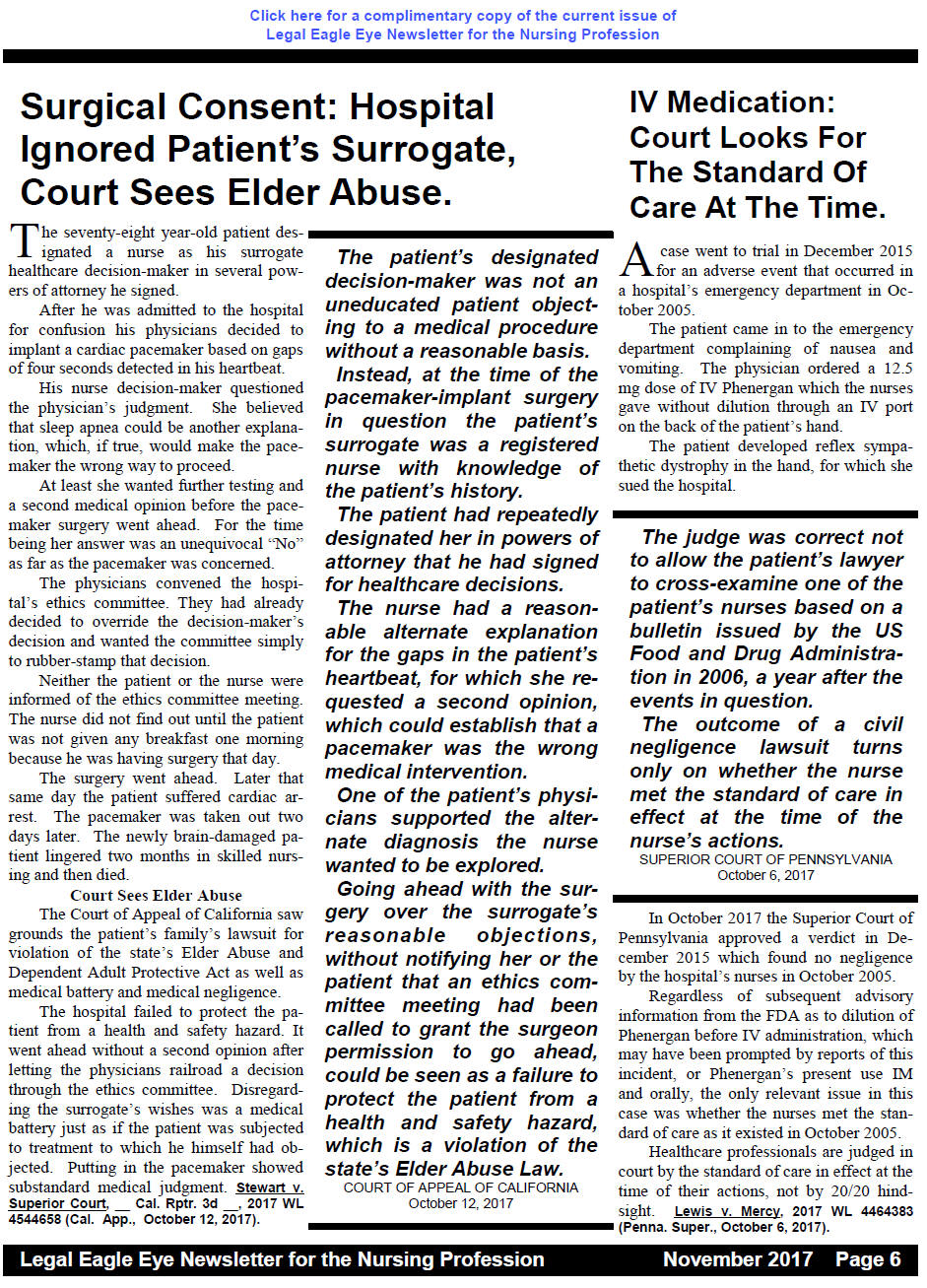
The judge was correct not to allow the patient's lawyer to cross-examine one of the patient's nurses based on a bulletin issued by the US Food and Drug Administration in 2006, a year after the events in question. The outcome of a civil negligence lawsuit turns only on whether the nurse met the standard of care in effect at the time of the nurse's actions.
SUPERIOR COURT OF PENNSYLVANIA October 8, 2017A case went to trial in December 2015 for an adverse event that occurred in a hospital's emergency department in October 2005.
The patient came in to the emergency department complaining of nausea and vomiting. The physician ordered a 12.5 mg dose of IV Phenergan which the nurses gave without dilution through an IV port on the back of the patient's hand. The patient developed reflex sympathetic dystrophy in the hand, for which she sued the hospital. In October 2017 the Superior Court of Pennsylvania approved a verdict in December 2015 which found no negligence by the hospital's nurses in October 2005.
Regardless of subsequent advisory information from the FDA as to dilution of Phenergan before IV administration, which may have been prompted by reports of this incident, or Phenergan's present use IM and orally, the only relevant issue in this case was whether the nurses met the standard of care as it existed in October 2005. Healthcare professionals are judged in court by the standard of care in effect at the time of their actions, not by 20/20 hindsight. Lewis v. Hospital, 2017 WL 4464383 (Penna. Super., October 6, 2017).